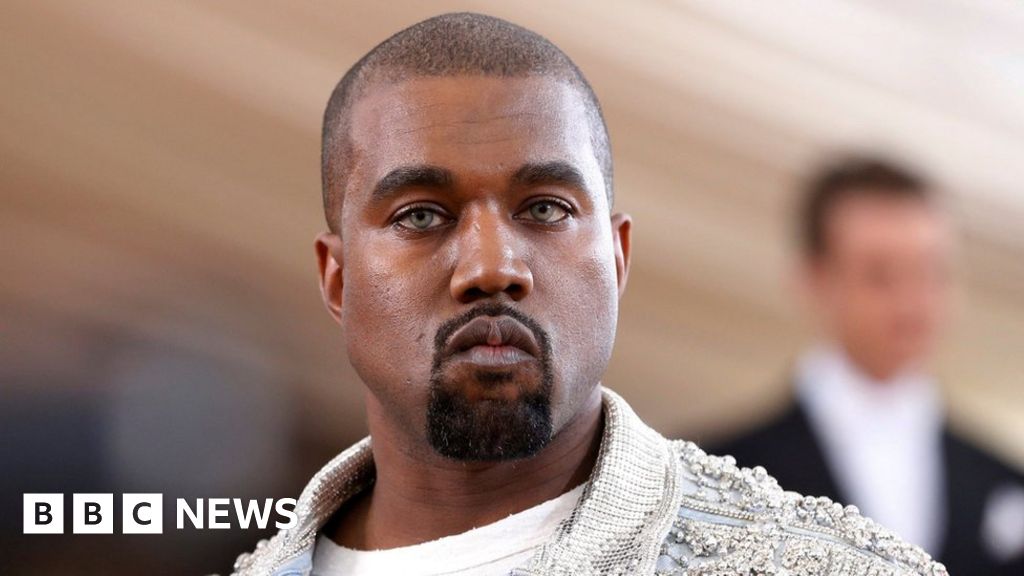Is the saga of Kanye West, now known as Ye, a cautionary tale of artistic brilliance eclipsed by self-inflicted controversy? His recent actions and pronouncements have not only sparked outrage but have also forced a critical reevaluation of his legacy, leaving a trail of damaged relationships and a tarnished reputation in their wake.
The echo of silence that followed initially searches for search results speaks volumes. The internet, normally a repository of instant information, seemed to momentarily struggle to provide easy answers, mirroring the confusion and uncertainty that has swirled around the artist in recent times. Queries returned the same frustrating message: "We did not find results for: Check spelling or type a new query." and the cycle continued, highlighting the complexity of a narrative that has become increasingly difficult to define. The search results are telling a story of something missing. It's the story of a man who once commanded the attention of the entire world.
The situation has been exacerbated by a series of public appearances and social media posts, adding fuel to the fire. The news that Kanye has been removed from a scheduled performance and replaced with an actor serves as a stark reminder of the consequences of his actions and statements. The original reports suggested that West would be attending The Weeknd's concert alone. Then, reports of The Weeknd ending his concert early began circulating, adding further confusion to the situation. These were not merely isolated incidents; they were components of a broader trend.
One attendee's account, describing a "peculiar ambiance" coupled with the presence of "robed hooded figures on stage," further contributes to an atmosphere of unease and speculation. Adding another layer of the complexities of the situation, and leaving the audience to determine the meaning of the peculiar ambiance.
The core of the controversy, and the questions being asked, stems from the repeated allegations of antisemitism. "What did Kanye West say about the Jews?" is a question that has been posed frequently and with increased urgency. The answer, unfortunately, is a series of statements that have been widely condemned. "Kanye's antisemitism has run rampant," is an assessment that summarizes the widespread dismay, with statements and allegations being reported across multiple media outlets and social channels. This is not a matter of misinterpretation or misunderstanding; it is a documented pattern of behavior.
The implications have been profound. He has posted antisemitic tropes on his social media accounts, shared antisemitic conspiracy theories, and later, on social media, threatened violence against Jews. These are not isolated incidents. They constitute a systematic pattern of hate speech that has caused profound distress, specifically to the Jewish community and to many of his fans.
Adding to the already complex narrative, is the analysis of the antisemitism meaning and why people hate jews. This is not the place to delve into historical arguments and the context of antisemitism. The point is that Kanye West has used the language and tropes of this hate, giving it an amplified voice.
Alex Jones, a controversial figure in his own right, entered the fray with a new conspiracy theory of his own. He proposed that his infamous interview with West, where Ye declared his "love for Hitler," was an elaborate "setup" orchestrated by "eugenicist super nazis". This attempt to rewrite the narrative only amplified the controversy.
Adding another layer to the unfolding story, it was revealed that Ye paid a settlement to a former employee who alleged that the rapper and designer had used antisemitic language in the workplace. The settlement, according to documents reviewed, serves as confirmation that the claims of antisemitic language are a source of contention and concern. While the details of the settlement remain confidential, its existence speaks volumes about the seriousness of the allegations.
Kanye West's appearance on Fox News anchor Tucker Carlson's show Thursday for a sprawling interview did not resolve the controversies but further cemented them into the public consciousness. It offered a platform for the rapper to air his views, but it also served as a flashpoint for criticism and debate. The interview, which spanned a considerable amount of time, allowed West to elaborate on his beliefs, but it also provided further context for the criticism and outrage that has followed.
| Full Name: | Kanye Omari West (legally known as Ye) |
| Born: | June 8, 1977 (age 46) in Atlanta, Georgia, U.S. |
| Nationality: | American |
| Known For: | Rapper, Producer, Fashion Designer, Entrepreneur |
| Music Career: | Debut Album: The College Dropout (2004) Notable Albums: Late Registration, Graduation, My Beautiful Dark Twisted Fantasy, Yeezus, The Life of Pablo, Ye, Jesus Is King, Donda |
| Fashion Career: | Founder of Yeezy (fashion brand) Collaborations: Nike, Adidas, Gap |
| Controversies: | Antisemitic remarks, public outbursts, controversial political statements, and erratic behavior. |
| Awards and Recognition: | 24 Grammy Awards MTV Video Music Awards, Billboard Music Awards Multiple platinum and multi-platinum albums |
| Personal Life: | Ex-Husband of Kim Kardashian Father of four children |
| Official Website (for reference): | kanyewest.com (Note: This website may be subject to change) |
The fallout from Kanye Wests actions extends beyond the immediate controversies. Brands have severed ties, collaborations have been terminated, and his music has faced boycotts. The financial impact, the reputational damage, and the erosion of public trust are all part of the equation. The once-unassailable figure is now grappling with the consequences of his choices.
The story of Ye is not simply about an artist and his art; it is also a reflection of a society grappling with issues of race, identity, and freedom of expression. It is a story that compels us to confront the potential for harm when artistic expression intersects with hatred and misinformation. This is a story still being written. It is a story that demands our attention, not just as consumers of popular culture, but as participants in the ongoing conversation about what we value and what we condemn.


